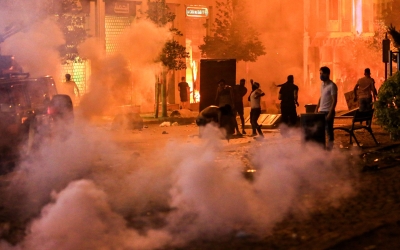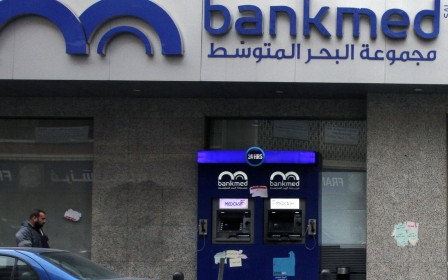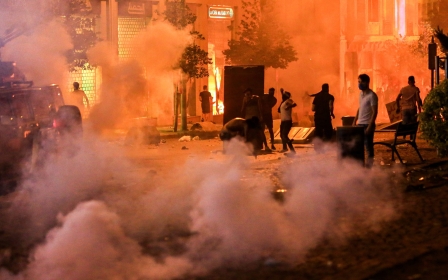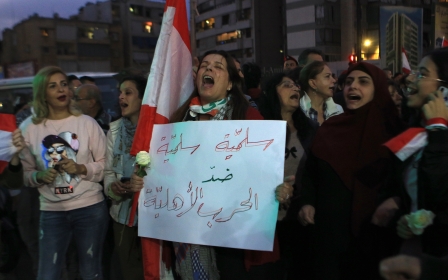Lebanon: Protesters block roads as petrol crisis deepens
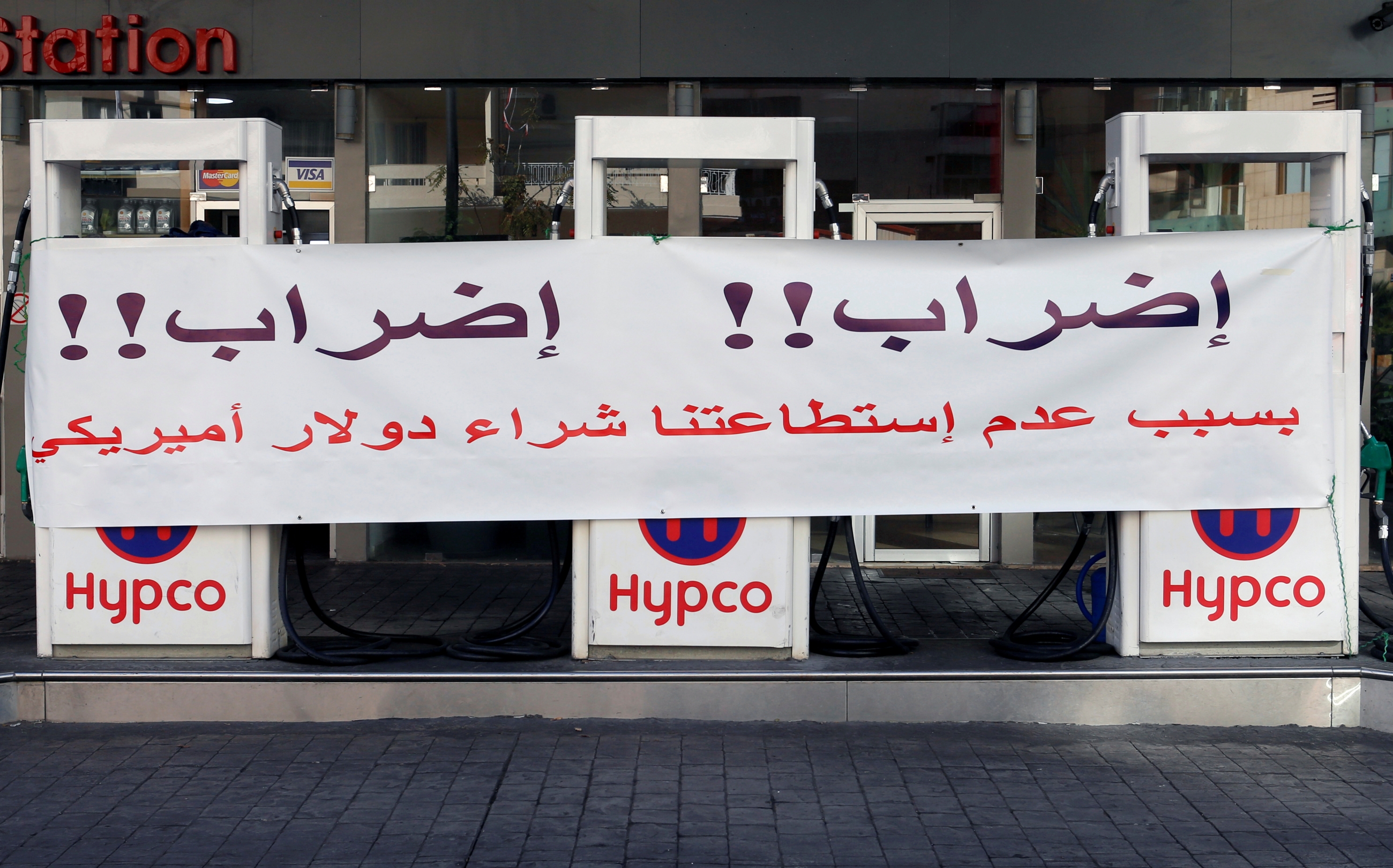
Demonstrators blocked roads across Lebanon to protest the dire economic situation, as major petrol stations were closed for a second straight day because of losses linked to the country's currency crisis.
The protesters temporarily closed major streets in Beirut on Friday, local media outlets reported.
Later on Friday evening, demonstrators also blocked the main highway linking the northern city of Tripoli to the capital in both directions.
A union representing petrol station owners said shops would be closed across the country on Thursday because the businesses were incurring losses related to the dwindling value of the Lebanese pound.
Lebanon is experiencing a foreign currency shortage and banks have imposed limits on how much money people can withdraw per day.
The buying power of the Lebanese pound (LBP) has plummeted, with money-exchange shops charging as much as 2,200 LBP for $1 USD, compared with about 1,500 before the crisis began last month.
The petrol station strike continued on Friday, bringing traffic in many parts of Beirut to a halt.
In Saida, about 45km south of the capital, the fire department said it was suspending services because of the fuel shortage.
Speaking to Lebanon's Aljadeed TV, the head of the gasoline station owners' union said at the start of the crisis, the central bank had allowed shop owners to buy petrol in Lebanese pounds.
"Now they want to give us only 85 percent of the money in Lebanese [pounds], and the rest we have to cover in dollars," said Sami Brax.
Brax added that the weak value of the Lebanese pound has made it impossible for the stations to continue to operate.
Along with the looming potential of economic collapse, Lebanon is facing a political impasse as protests continue to rage against the country's ruling elites.
The wave of protests erupted in mid-October, calling for major structural reforms and an end to corruption.
Prime Minister Saad Hariri resigned in late October in response to the demonstrations.
A month after Hariri's departure, as political divisions and pressure from the demonstrators have persisted, Lebanon's political parties have still not held parliamentary consultations to choose a new prime minister.
Middle East Eye propose une couverture et une analyse indépendantes et incomparables du Moyen-Orient, de l’Afrique du Nord et d’autres régions du monde. Pour en savoir plus sur la reprise de ce contenu et les frais qui s’appliquent, veuillez remplir ce formulaire [en anglais]. Pour en savoir plus sur MEE, cliquez ici [en anglais].


